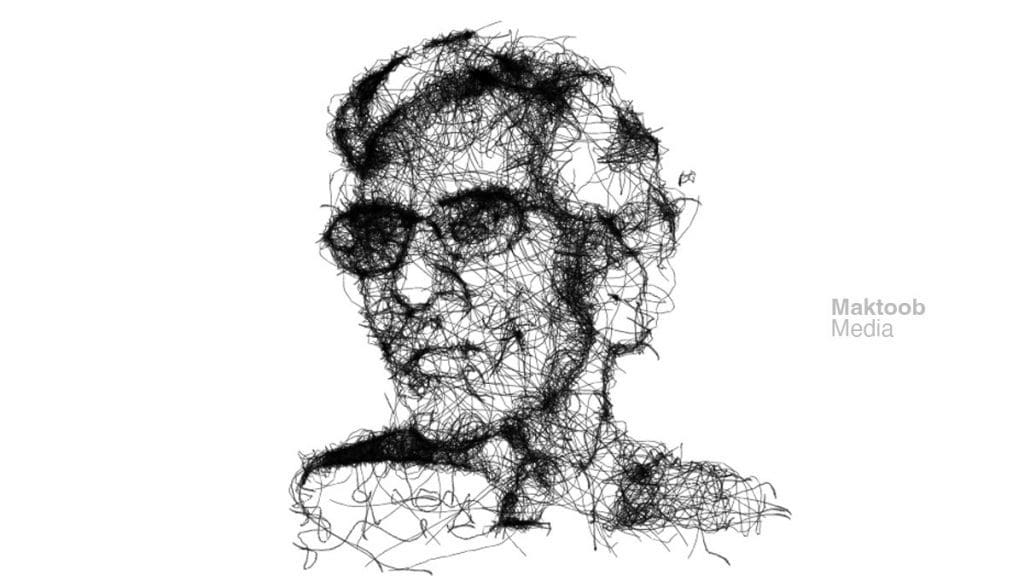
He was 98 years old and had been working since 14, when his father, a labourer, passed away. He first worked as a clerk in the PWD and then went on to do masters in Persian and English Literature. He joined the Persian Department at Kashmir University and then the Department of Kashmiri until his retirement in 1985. He was part of the Cultural Congress, an offshoot of the Communist Party, which he later denounced.
Rahi had dozens of books to his credit, including Sana-Wani Saaz (poems), Nawroz-i-Saba (poetry), Kahwat (literary criticism), Baba Fareed (translation), and he edited Kong Posh (Kashmiri literary journal) and the newspaper Khidmit.
I heard of his passing through a friend who is a portrait photographer. He was working on a project documenting Kashmir’s living iconic people, and at the top of his list was Rehman Rahi. Knowing my acquaintance with Rahi Sahab, he requested a meeting with him. However, even officials from the Sahitya Akademi could not meet him, as he had been confined to a room due to his old age and health since the Covid outbreak in 2019.
As a schoolboy, I walked with my father and his friend in Lal Chowk. During our stroll, my father stopped to greet a man, introducing him as Rahi Sahab, the renowned doyen of Kashmiri literature. My father then remarked that great men travel by bus, referring to Rahi Sahab’s habit of taking public transport. His friend, a conservative religious person, began to criticize Rahi Sahab for allegedly being a member of the Godless organization, the ‘No God Federation’. In traditional Kashmir, such people were not well-received. He said that Kashmir was cursed because of people like Rahi Sahab and other such comments. This was how I was first introduced to Rahi Sahab, with two very different perspectives.
When Rahi Sahab wrote the anthem of Kashmir University, which discussed the intellectual tradition of Kashmir, he was sharply criticized by conservative religious-political parties and a prominent separatist leader for not including Mir Syed Ali Hamdan, who was known for the mass conversion of Kashmiris and his massive role in shaping Kashmiri society. Rahi Sahab famously replied that Hamdani was not Kashmiri.


I last saw Rahi Sahab in 2017 at an iftar party organized by a leader. The two were very fond of each other, and Rahi Sahab spoke at the function. Despite his age and ill health, the separatist leader greeted him warmly and expressed gratitude for Rahi Sahab’s presence. He went on to say that this was the greatness of Rahi Sahab. Despite being on opposite political spectrums, the two perceived him differently. This speaks volumes about the complexity and contested nature of Kashmir and how different people view his work.
In a 2017 interview with Kashmir Ink, Rahi said that his political poetry, such as “Khak E Karbala”, which he had written in the 1990s, was not published by any paper for being too critical of the state. He also said, “Poets can’t remain aloof from politics, but they shouldn’t become its victims”. Rahi believed this, yet in a Time interview, he said, “We stood with pen and paper on the banks of a river filled with blood and chose not to see the pristine water turned red.”
Despite this, Rahi cannot be dismissed outright, as he was a literary genius who worked tirelessly to promote the Kashmiri language and shape the identity of Kashmiris. With Rahi, Kashmir became relevant in the existential quest for world philosophies. With his passing, Kashmir lost an icon and a literary genius.
Faizaan Bhat is a freelance writer. He has written for Outlook India, The wire, Greater Kashmir among other outlets.



